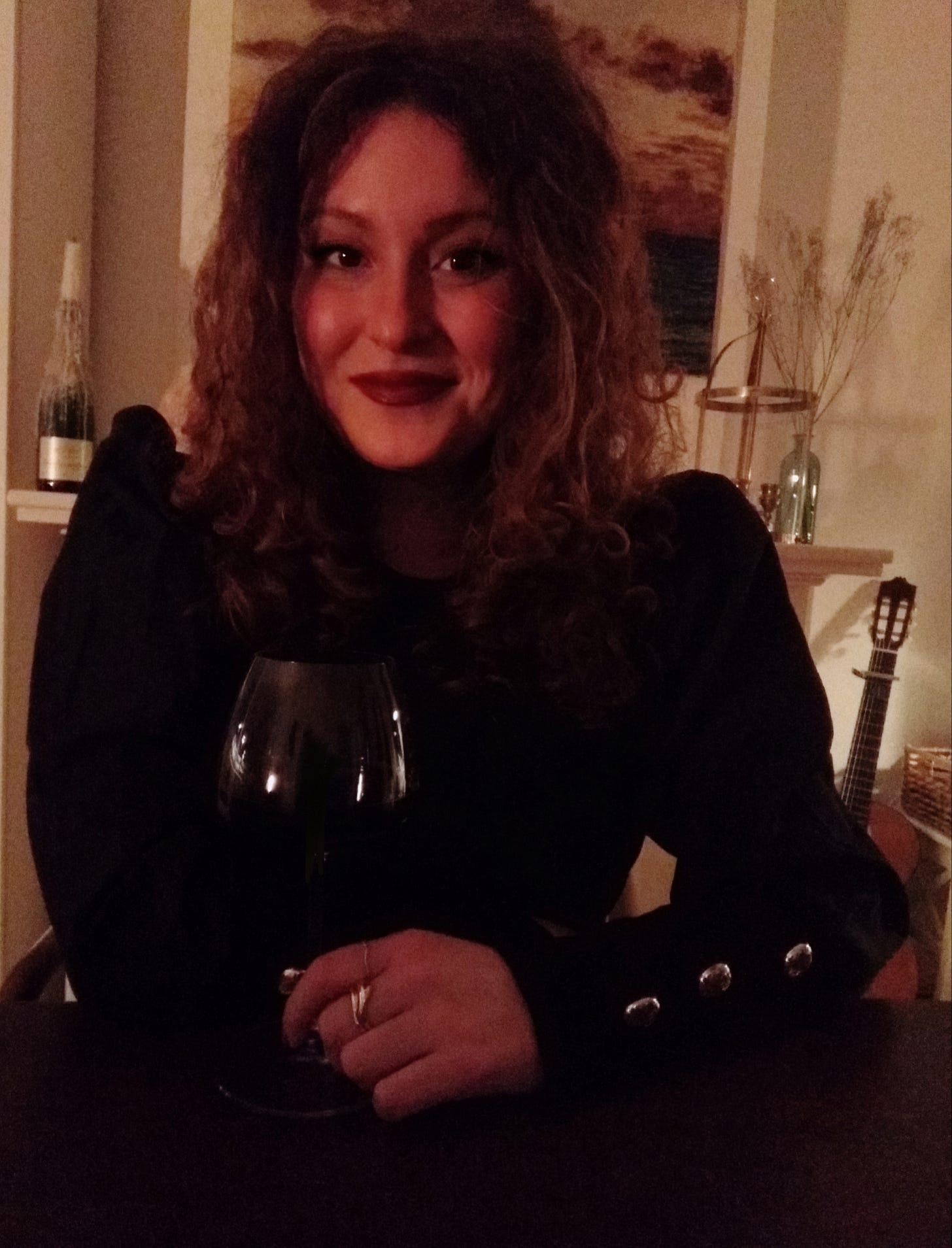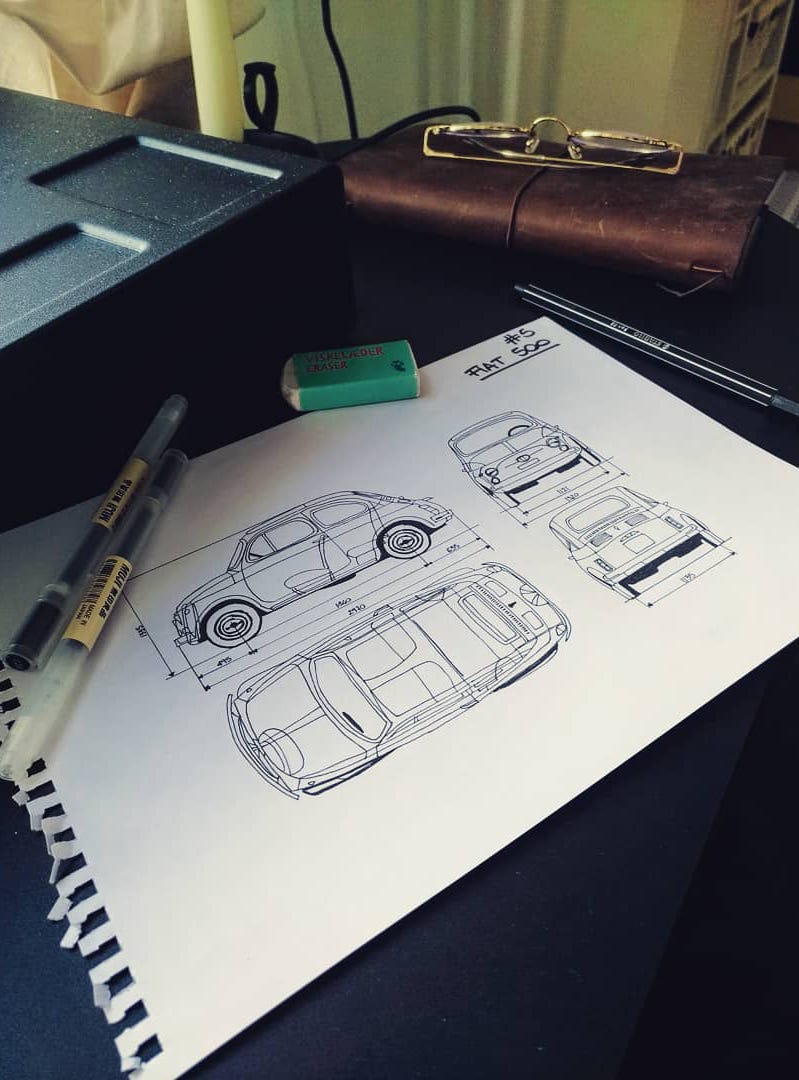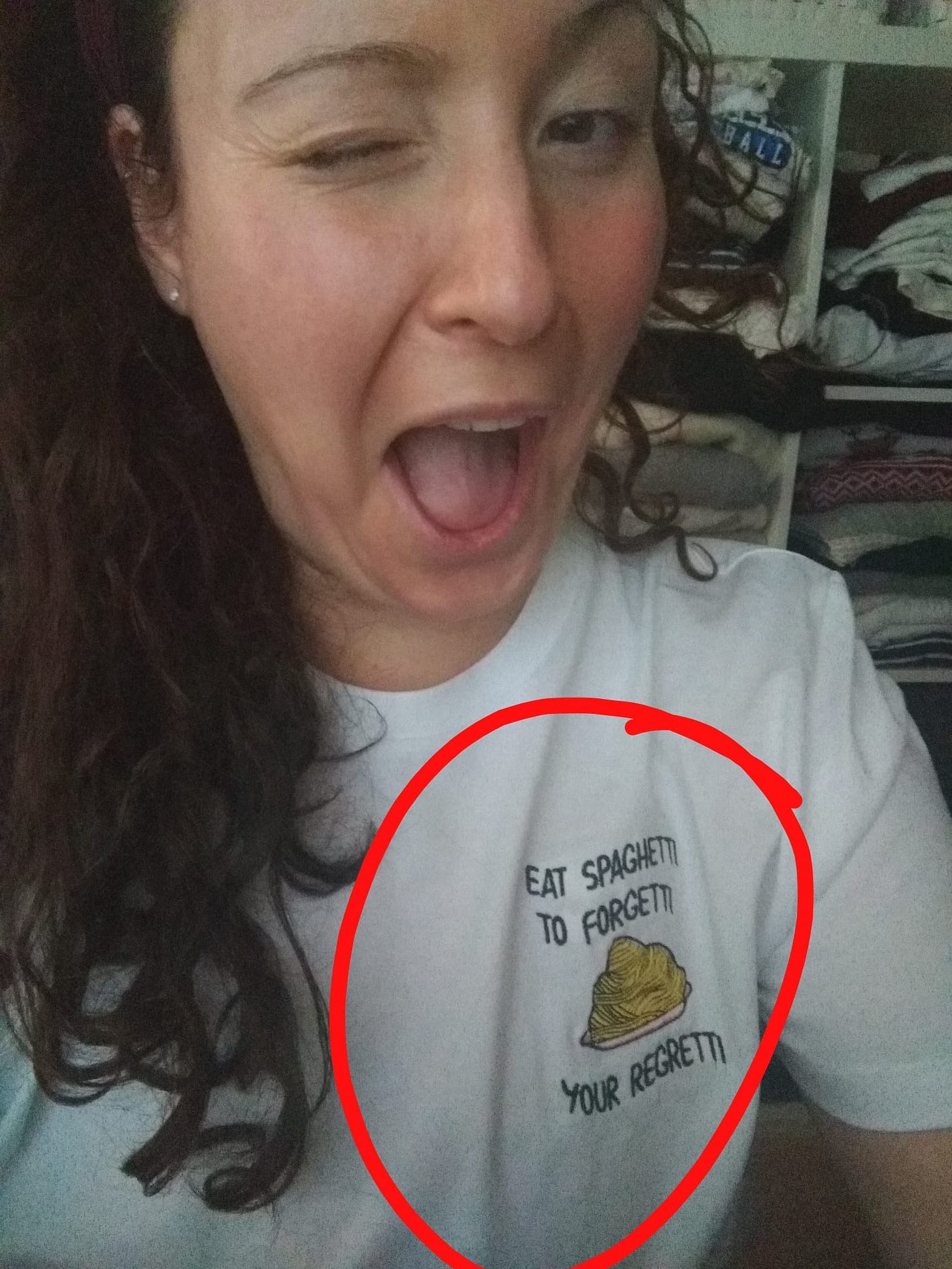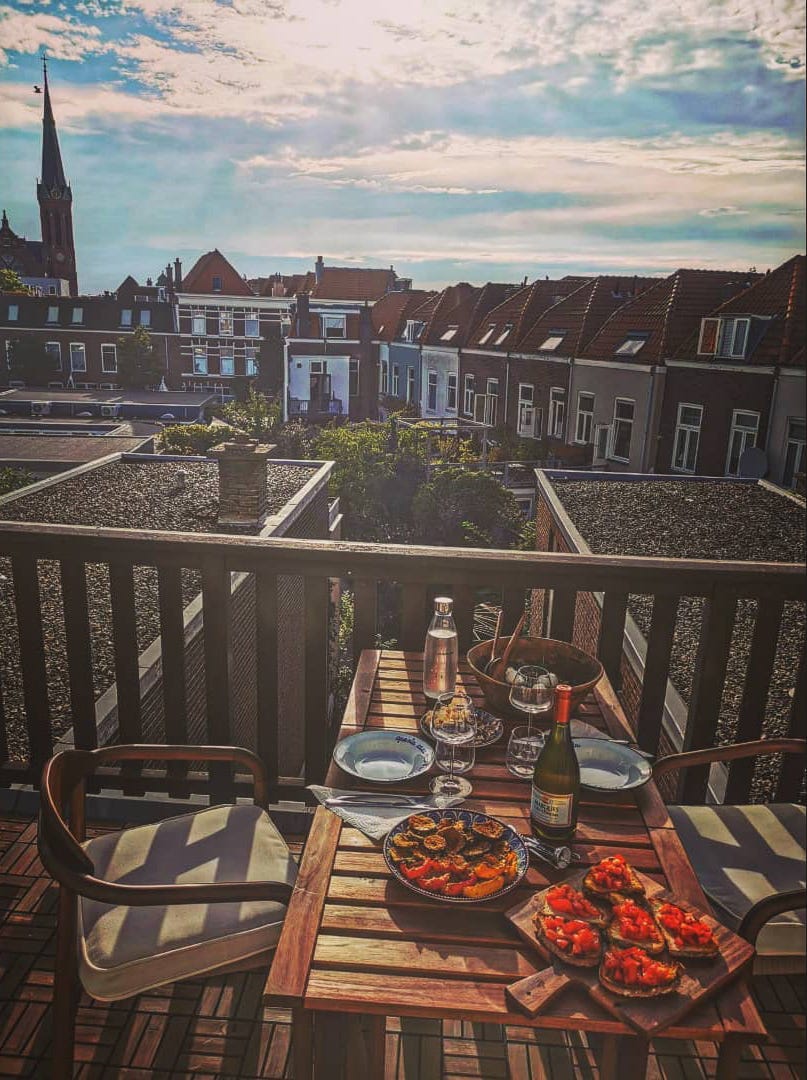Giulia Oberti di Valnera is giving herself breathing room
Living in The Hague, nostalgia for Italian food, and the importance of hobbies
Giulia Oberti di Valnera is an Italian who’s lived, studied and worked in The Netherlands for five years (celebrating her Dutch anniversary this month!). She first made the move for a Master’s program, and decided to stay permanently on after accepting a job with Booking.com.
I met Giulia almost eight years ago(!) in New York as an intern - you can read about our friendship here. When I visited her this spring in her now-hometown of The Hague, we had the best conversations about cultural differences around work, hobbies, burnout and more. I’m so fascinated by how her life has changed and knew she’d have a lot to share. I hope you enjoy this interview as much as I did having the conversation.
Christine: Tell me how you ended up in the Netherlands from Italy.
Giulia: The process started a long time ago. Usually, Italian people go away for the holidays, either to the mountains or the seaside. That isn’t something that we did, because my parents wanted us to travel more. So I never had those relationships during the summer, strong bonds with friends that you have from school and so on, because we’d always be traveling.
When I hit the age where I could travel alone, I went to the United States - I ended up in San Francisco for a summer. While my friends were learning English for a summer in Cork, traveling with organizations of 70% Italians, I ended up by myself at the tiniest English school in the financial center. It was the beginning of what brought us together later in New York - I would spend every summer studying and traveling around.
I knew that Italy wasn’t my thing, because of taxes, and meritocracy, and being able to find a job that is actually what you want and being paid fairly for it. So I was trying to figure out where I wanted to move. Once I finished university in Milan, I found a Master’s that was more or less what I wanted to study, and it was in The Netherlands. So I didn’t really plan for it. The Netherlands wasn’t one of the places on my map of where I to move and start a new, bright life. (Laughs)
Christine: I totally understand. It wasn’t on my vision board to move to Ireland.
Well, The Hague is magical, so I’m glad you ended up there. You said there were aspects of Italian life that made you know you didn’t want to live there permanently - what do you think are the biggest differences living in The Hague versus Milan?
Giulia: Where to start? To build those foundations that you need to travel, to afford rent of your own without sharing a house - these are things that Italy doesn’t leave good space for. If you want to move out, that usually happens when you get married, and your parents help you buy a house. So everything feels more difficult. Finding a job that you actually like, and chose because that’s what you want to do, it’s almost impossible. You have a beautiful country, places to go and spend time outside, but it feels pretty limited. I would say that’s the main difference, and that’s what pushes people out of the country. It’s easier to build a family in Italy than a career.
But the thing I miss the most - Italy is a very small country, which compresses a lot of things in a small territory. A lot of landscapes, and cities, and cultures. It’s really easy to spend a day outside the city: you can go to the beach and come back, you can go to the mountains and come back. You can access a change of scenery, which in The Netherlands is not that easy.
Christine: Milan feels like such a cultural capital. I felt the same living in New York.
Giulia: Girl, I know. But also, New York ruined me. Like, you have access to culture - if you want to go to a museum, you can, movies out in the park, there’s always something you can do. Even if you can’t afford things, you can still go out. In Italy there is a lot to do but it’s always paid. In The Netherlands it’s the same. And there isn’t the same amount of stuff, just because the weather often sucks. New York really spoiled us.
Christine: I know. I feel like I’m still in the denial stage. (Laughs) I haven’t completed the grief cycle yet.
What are the things that you really like about the Netherlands?
Giulia: I love that it changed my perspective. I used to be a big city girl, and that’s why I loved Milan. Rome is lovely, of course, but in Italy we say Rome is a province and Milan is a capital. Everyone comes to work there. I could never envision myself living in a smaller place outside of Milan, like some of my friends did. The Netherlands, from this point of view, is perfect because trains run like subways across the country. If you want to go to Amsterdam for a concert, you’ll make it back any time of night with no issue. Everything is close, despite the distance.
In The Netherlands they really take pride in the things they have, and they build up on that beautifully. They really value private life - the effort and care you put into building yourself as a person, your interests, the things you want to do. If I were to say “I’m going to do a pottery class” in Italy, my friends would look at me like, you have pottery in your brain, what is wrong with you? And here it’s a normal Friday suggestion.
Christine: That perspective on hobbies is so interesting to me. I feel the same, coming from America. It’s so much more capitalist, more go go go. And it’s so much less flexible with work there - I notice that coming to Ireland as well. People do stuff after work here, because they leave work at a reasonable time. One of Peter’s friends was doing a beer making course for weeks - every week he would go and brew beer. I just feel like it isn’t even possible for my friends in the states. Like, when would we have the time?
Giulia: I wouldn’t know where to start. And I’m still so close to the Italian mindset, where it feels like I wouldn’t fit in it. And that’s not true! They make you so comfortable, whatever you join. But yeah, it’s very far from our normal.
Christine: That’s really a mental block for me - currently I have less going on than normal, and I feel like, I have to fill this time with work. And then I’m like, oh my god, that’s the capitalist mindset! It’s really hard to get out of that way of thinking. I’m very impressed by the people here who are just chilling.
Giulia: They totally unplug. It’s true. Italy isn’t like that - it’s more aligned with the United States. The amount of extra work hours, it’s taken for granted. In The Netherlands, at 5pm, everybody leaves. It takes a bit of time to adjust to that.
Christine: I feel like I have to purposely detox from that. What types of hobbies are you trying to take up?
Giulia: So being an expat, you bond with a lot of other expats. There’s a French girl who lives nearby, she’s from Nice, and she’s done a lot of sailing, which is something I used to do when I was little. She wants to pick it up again here, and I thought, that’s a beautiful idea. This is the perfect place - you have these massive strips of beach and sand everywhere. And doing it with someone else feels less scary than doing it with people who are experts because they’ve been sailing forever.
And also - here is a curious fact: years ago, when I was fourteen or fifteen, I did some archery and realized that I love it. So I took some archery classes in Milan, and recently I went to the park and I was thinking: oh! That’s something I’d like to do. So I’m looking into taking up archery again.
Christine: I’d like to take some swimming classes. My lower body is strong because I’m a runner, but my upper body is like jelly. And there are a lot more opportunities to swim here. Swimming in New York is hard, because private pools are expensive, obviously, and then the public pools are so crowded.
One thing that’s really interesting to me is the paid sick leave situation in The Netherlands, and burnout leave, and how people actually use those options.
Giulia: They do use their leave. Sick leave is paid by the government, so the first year that you’re sick you get paid at 100% of your salary, the second year that you’re sick you get paid 70%, and so on, for a maximum of I think four years. It feels insanely generous. Part of it is paid by the company, but the rest is paid by the government. You get great support. And you have parental leave - maternity leave that is paid, but after the birth you also have dad’s leave, and so on. And after parental leave you now also have a year-long period of time where you can take a day off work just to be a mom or a dad. It helps compensate for the fact that the country is lacking enough kindergartens. Here, they’re very expensive, and there are very limited spots.
It feels like a country that cares a lot about the people, and not just what they bring to the table in terms of revenue. It’s a country where you feel pampered, at least for someone who comes from a very different situation like in Italy.
Christine: It’s just amazing.
So I would be remiss if I I didn't ask you about the differences in food. Tell me what you like about Dutch food, versus what you miss about Italian food.
Giulia: Oh boy. (Laughs) Well, Dutch food - there are good things of course, cheese, things they import from their colonies. Coffee, fruit. They have this culture of food with beers. But overall I wouldn't say I’m super impressed. They aren’t accustomed to the use of spices, of flavors and herbs. I’ll see people pick herbs off their food and put them on the side. In Italy, we use everything. Like, a zucchini, we use the whole veggie, the flower.
In The Netherlands it’s very typical to mix together a lot of ingredients that are individually good, and the thinking is, if I take eight things that are good individually, they’ll be amazing together. But - not really! A lot of the dishes in Italy are really basic, like tomato sauce with pasta. You usually have three, four ingredients, tops. Here, they always want to put arugula on your pasta, or an extra ball of mozzarella that’s melting on top, and some parmesan, and then some nuts. It’s very different.
But overall, I love that they have so much international food here. You can have Vietnamese food, Thai, whatever you want. In Italy it’s very limited. Even in big cities - like, in Milan we literally only have two spots for ramen. Here you can have something different every night.
Christine: I think Irish food is similar to Dutch food -
Giulia: It’s pub food.
Christine: Pub food! Yes. And when it comes to spice profiles here, literally everything just tastes like ketchup.
Giulia: Don’t even get me started.
Christine: The other day we ordered pizza from this place - and I know I shouldn’t even be talking to you about pizza, since as an Italian you obviously have pizza supremacy - but they literally had a pizza on the menu that had corn and tuna on it.
Giulia: Oh no. Oh my god. They have a place here that’s called Happy Italy - it’s not happy at all. You might be happy, I’m not happy.
Christine: They try their best. There’s a lot of overlap in our situations. Okay, hit me with your parting thoughts.
Giulia: I underestimated how much I would fall in love with the country, and the culture they have here. I always thought this wouldn’t be my last stop, but I think it’s going to be.
I love The Hague - it’s the perfect mix between a big city and something human-sized. And it’s gorgeous. This is a great country that gives you a lot of opportunities, in terms of work, in terms of getting personal space that I never saw cultivated as much anywhere else. You have breathing room to enjoy life. Because that’s what it’s all about - your job shouldn’t be just an ATM, but it also shouldn’t be your only goal. And this country leaves space to find out who you are, what you want to be, and to find out everything in the middle.











I love this slice-of-life interview, a really enjoyable read! Thank you!